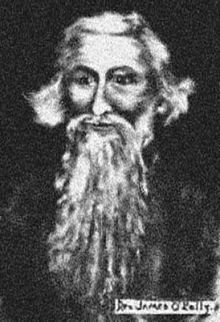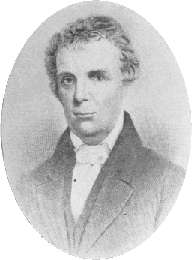Christian Connection
[3] During the same period, Elias Smith of Vermont and Abner Jones of New Hampshire led a movement espousing views similar to those of O’Kelly.
Stone and five other ministers published The Last Will and Testament of the Springfield Presbytery in 1804, giving up denominational ties to the Presbyterian Church and preferring to be known simply as Christians.
Stone was influenced by his earlier involvement with O'Kelly and knew of the Republican Methodist practice of simply using the name Christian.
Stone's concept of unity grew from a belief that Christians could extract the Bible's truths by reason, if they approached it without presuppositions.
These truths, in turn, would displace human forms of order, leading to the inevitable result that Christians would start “flowing together” and others would come to faith because of the model of unity.
The failed Rebellions of 1837 (led principally by Louis-Joseph Papineau and William Lyon Mackenzie) severely undercut the Connection's Canadian wings.
Smith proved to be a controversial figure in the Christian Connection, leaving the denomination for several years to become a Universalist.
[5]: 190 The eastern members had several key differences with the Stone and Campbell group: an emphasis on conversion experience, quarterly observance of communion, and nontrinitarianism.
[5]: 190 Through the 1830s and 1840s, practical difficulties associated with the movement's attempt at radical reform led to an erosion of the anti-organizational principles developed by Jones, Smith and others.
Both, at differing times, were editors of the Christian Palladium, a New York State-based religious newspaper that vied with the Herald of Gospel Liberty as the movement's leading periodical.
[citation needed] Many of the movement's publications were produced by the Christian Publishing Association, based in Dayton, Ohio.
[8] A disproportionate number of Christian Connection preachers in New England were involved in the eschatological stir fueled by speculations of William Miller.



